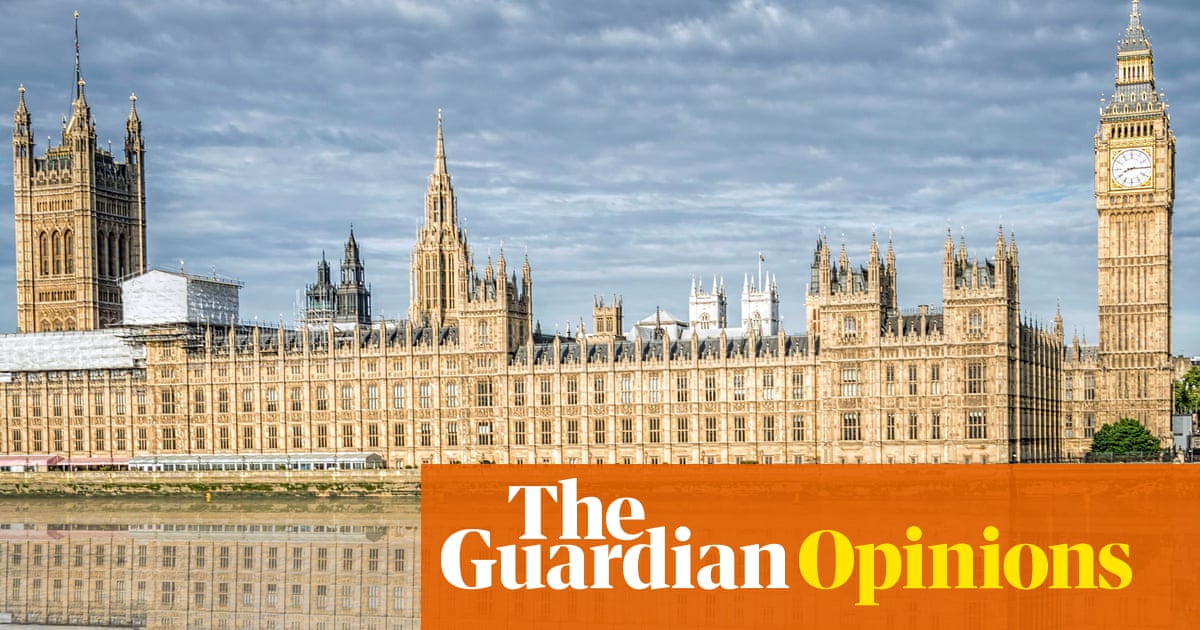
Like a serially unfaithful husband pleading with his much-betrayed wife for one last chance – a speech he’s had plenty of practice at – Boris Johnson is telling anyone prepared to listen that he can change. Don’t kick me out of the house, so he begs Tory MPs with their fingers on the trigger of a confidence vote, I will prove to you that I can be a different man.
He did the same after the release of Sue Gray’s heavily circumscribed, and yet still highly damning, preliminary report about the orgy of lockdown-busting booze-ups at Number 10. Unable to quarrel with her conclusion that there were “failures of leadership and judgment”, the prime minister told the Commons: “I get it and I will fix it.” No, he doesn’t. No, he won’t. Even if this sly old leopard sincerely wanted to change his spots, he is incapable of it. The Conservative MPs who are invited to meetings with him hear faux-earnest pledges that he will pay more attention to their views in future and assemble a more professional team at Number 10. Only the hopelessly credulous will believe this.
He is 57. People of that vintage rarely change. When they do, it is only because they possess the exceptionally high level of personal discipline required for someone to transform their essential nature at a mature age. One of the things we know about Mr Johnson is that he doesn’t do discipline. His recklessness, his deceitfulness, his entitled attitude that rules never apply to him and his unwillingness to face the consequences of his own actions are why this scandal happened. It’s because he can’t change and refused to even try to change when he moved into Number 10 that his premiership is self-imperilled.
One of the notable things about his personality is how very little it has altered over the years. The twentysomething tyro journalist who was sacked from the Times for confecting a quote and mendaciously attributing it to his historian godfather is completely recognisable as the man of many years later who issued a stream of false denials about partying in Downing Street.
He won’t change. It is much more likely that he will stay the same, but even more so. If he somehow survives this scandal and clings on as prime minister, he will almost certainly become an even worse iteration of himself. Witness his desperate attempt to smear Sir Keir Starmer with the false claim that, in his previous role as director of public prosecutions, the Labour leader was personally responsible for the failure to prosecute Jimmy Savile. It was grotesque at every level, this Trumpian attempt to associate the leader of the opposition with Britain’s most rapacious paedophile. It was a lie and so demonstrably untrue that even the cautious BBC labelled it “false”. Not only was it shameful, it was also extremely stupid, because the net result was not to strengthen Mr Johnson’s grip on the premiership, but to make it more precarious. Quite a lot of Conservative MPs, including ones as yet undecided about what to do about him, recoiled in disgust.
It so appalled the head of his policy unit that she tried to persuade him to issue a full retraction and apology. When he refused, Munira Mirza resigned. Hers was much the most significant of the cascade of departures from Number 10 over recent days. While the other advisers had only been members of his inner circle for a relatively short time before they were spat out, Ms Mirza was one of the Johnson long marchers. She was with him at City Hall and has been at his side for 14 years. He once said that she was one of the five women he most admires, a list that also included Boudicca and his grandmother. I shudder to think what Ms Mirza has seen during her many years aboard the Johnson rollercoaster. Anyone who has been with him that long must have a lead-lined stomach. She was even prepared to defend him when he likened women wearing burqas to “bank robbers” and “letter boxes”. For her, the “scurrilous accusation” about the Labour leader was something so sick-making that she couldn’t take any more. In an excoriating resignation letter, she lambasted him for “an inappropriate and partisan reference to a horrendous case of child sex abuse”. She was surely writing more in vain hope than serious expectation when she told him that it was “not too late” for him to say sorry “for a grave error of judgment”. Ms Mirza knows him better than almost anyone else and she knows he cannot change.
It is essential to remember this whenever you hear Mr Johnson suggest that he can relaunch his premiership by building a refreshed regime at Number 10. After the mass exodus of his most senior aides, received wisdom at Westminster is that he will struggle to attract quality people to fill the vacancies. Would you sign up to work for a prime minister who might very well not be there in three months – or even three weeks? Would you want to put your career in the hands of an infamously capricious boss and the feverish calculations of Tory MPs debating whether or not to try to evict him?
In a ruse to try to make himself sound serious about doing things differently, Mr Johnson says he want to create an Office of the Prime Minister, an institution all his predecessors managed to do without. A new brass plate won’t remove the fundamental source of the dysfunctionality in Downing Street because he is the fundamental source. From the lethal mishandling of many aspects of the pandemic to Wallpapergate and much else besides, all the scandals and follies that have been spawned in Number 10 during his time there have one common denominator: him. Whitehall understands this. Senior civil servants who have been tipped as potential permanent secretaries for the new Office of the Prime Minister have told colleagues that they have absolutely no interest in working in proximity to the lord of misrule at Number 10.
It was announced last night that Steve Barclay will move from the Cabinet Office to become the new chief of staff and Guto Harri, an adviser to Mr Johnson when he was mayor of London, is the new director of communications. They may have persuaded themselves that they have what it takes to make him a better prime minister. All one can say to them is that many others have deluded themselves that they could change Mr Johnson – wives, girlfriends, editors, party leaders, civil servants, colleagues, staffers. Their invariable fate has been miserable failure.
Remember the parable of Allegra Stratton. A successful journalist and then a well-regarded aide to the chancellor, she was lured on to team Johnson with the ego-seducing promise of a significant, influential and glamorous role as his chief spokeswoman. He told her she would find him an eager audience for her advice. The job offer then dematerialised when the prime minister changed his mind and she was shunted into a lesser function for a while before quitting in tears when she was exposed joking about a Christmas party she did not even attend. Consider the moral of Dominic Cummings. Thinking himself both more clever and more ruthless than Mr Johnson, he thought he had the guile, the ideas and the energy to control the prime minister and rule in his name from behind the throne. He ended up being ejected from Number 10 carrying a box of his belongings.
Ponder on the fate of Dan Rosenfield. He became chief of staff at Number 10 in January 2021 when the prime minister was blaming his previous bunch of aides for the anarchy in the building. Mr Rosenfield arrived with glowing commendations from people who had worked with him. He was a superb operator, they said, with a record of getting things done both at the Treasury and in business. Tory MPs and cabinet ministers were assured that Dan was the man to fix Downing Street. Instead, he has become yet another figure who strayed into the chaos field generated by Mr Johnson and was then consumed by it. Barely more than a year after he took up the post, Mr Rosenfield has tendered his resignation. He, Mr Cummings and Ms Stratton are very different characters. All made the terrible mistake of thinking they were strong enough to cure Mr Johnson of his weaknesses.
On Friday, the prime minister gave a talk to his remaining staff in which he quoted a character from The Lion King: “Change is good.” There’s only one change to the personnel at Number 10 that would do some real good.
Andrew Rawnsley is Chief Political Commentator of the Observer












